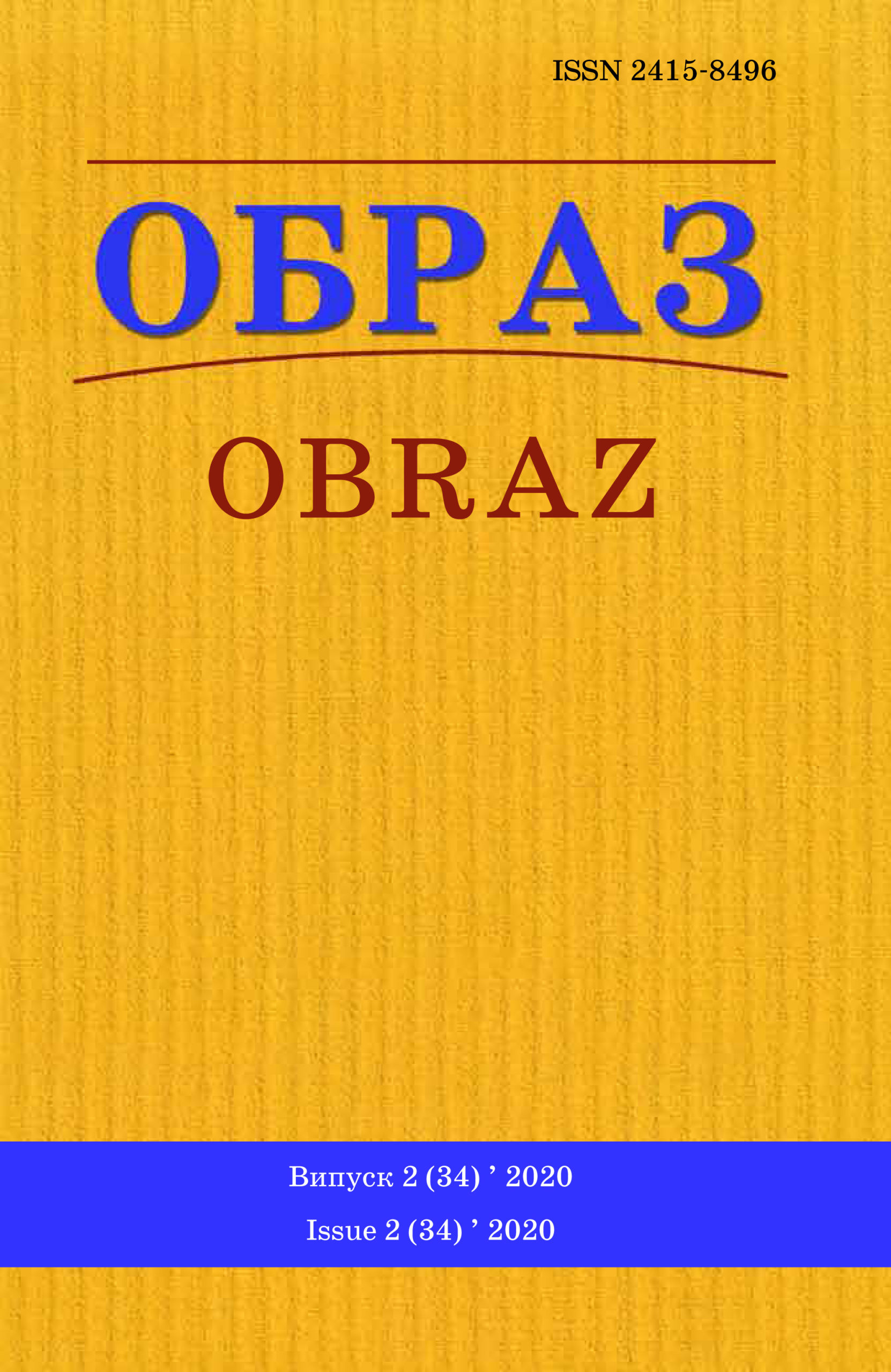Abstract
Introduction. Any political process uses documentaries and feature films to promote and impose the policies of the ruling party. In the last two decades, political series about the activities of presidents and their administrations have become widespread. At the same time, such series appear during the presidential campaigns and long before their beginning to form voter tolerance for the new type of presidents. The purpose of the article is to find out the role of political series and films (including the political series «Servant of the People») in strengthening the mediatization of Ukrainian politics.
Relevance of the study. In Ukraine, in a single country, the political series not only influenced the election results, but was embodied in reality, which indicates the intensification of mediatization of the political sphere. The research methodology is based on the application of analytical-synthetic method (for analysis of cinema features with further comparison and generalization of the obtained results), descriptive method (for description of interaction of political and media systems in Ukraine) and comparison method (for analogies between Ukrainian political series and USA political series). Results. It has been found that the media, in particular cinema, are able not only to reflect reality, but also to create it on their own. This is facilitated by such features of the media as mobility, accessibility, high speed of dissemination of information to a wide audience, and so on. The special features of cinema that distinguish it from other media and determine its influence on the political consciousness of the population is its ability to influence the emotional sphere, pretend to be real, evoke empathy, divide the characters into «bad» and «good». For this reason, the cinema of the USSR, the Third Reich and the United States pays great attention to the formation of images of heroes who are identified with the political system of the country. At the same time, the United States has repeatedly used TV series to create a loyal attitude to the new type of president on the eve of the election and long before it. Conclusions. It is concluded that the mediatization of the political sphere in Ukraine has only deepened, as evidenced by the fact that only in Ukraine the script of the political series was realized. The success of The Servant of the People is a testament to the effectiveness of the United States soft power policy and the widespread use of mythology in American cinema.
References
1. Anufrienko S.V. Mediatizaciya politiki i politizaciya media. [Mediatization of politics and politicization of media.] Universitetskie chteniya: materialy nauch.-metod. chtenij PGLU. [University readings: materials scientific-method. PSLU readings] Pyatigorsk, 2016. S. 62-66. [in Russian].
2. Artamonova U.Z. Amerikanskij kinematograf kak instrument publichnoj diplomatii SSHA. [American cinema as a tool of US public diplomacy.] Analiz i prognoz. Zhurnal IMEHMO RAN : setevoj zhurnal. [Analysis and forecast. Journal of IMEMO RAN: online journal] 2020. № 2. S. 110-122. DOI 10.20542/afij-2020-2-110-122. [in Russian].
3. Beznosov M.A. «Mediatizaciya» politiki i ee opasnost’ dlya demokratii. [«Mediatization» of politics and its danger to democracy..] Vіsnik Kharkіvs’kogo nacіonal’nogo unіversitetu іm. V. N. Karazіna. [Bulletin of Kharkiv National University IM. V. N. Karazina.] 2010. № 891. S. 32-36. [in Russian].
4. Zhadanova V.V., Shirobokov A.N. Yumor kak sredstvo politicheskogo diskursa: ot medijnoj persony do kandidata v prezidenty. [Humor as a means of political discourse: from a media person to a presidential candidate.] Vestnik RUDN. Seriya: Literaturovedenie, zhurnalistika. [RUDN Bulletin. Series: Literary criticism, journalism.] 2019. №1. S. 109-116. [in Russian].
5. Zhezhko-Braun I.V. Serial «Sluga naroda» kak polittekhnologicheskij scenarij prezidentskoj kampanii Zelenskogo. [Servant of the People series as a political technology scenario for Zelensky’s presidential campaign.] Idei i idealy. [ Ideas and ideals] 2019. T. 11, № 3, ch. 1. S. 94–122. DOI: 10.17212/2075-0862-2019-11.3.1-94-122. [in Russian].
6. Katsuba M. Khudozhnie kino iak zasib formuvannia masovoi politychnoi svidomosti. [Artistic cinema is based on the formulation of mass political evidence.] Politychnyj menedzhment. [Political management.] 2013. № 1-2. S. 136-144. [in Ukrainian].
7. Kostyria I. Mediatyzatsiia polityky ta polityzatsiia ZMI iak tendentsii politychnoho protsesu v Ukraini. [Mediaization of policy and policy of 3MI as a tendency of the political process in Ukraine.] Politychnyj menedzhment. [Political management.] 2013. №1-2. S. 109-118. [in Ukrainian].
8. Maklyuen G.M. Ponimanie media. Vneshnie rasshireniya cheloveka. [Understanding media. External extensions of a person.] Moskva, 2007. 27 s. [in Russian].
9. Oniszczuk Z. (2011). Mediatisation of Politics and Politicisation of the Media. Two Dimensions of the Relationship. Studiów Medioznawczych. 4 (47). 1-15.
10. Pochepcov G.G. Kommunikativnye tekhnologii dvadcatogo veka. [20th century communication technology] M.: «Refl-buK», K.: «VakleR», 1999. 352 s. [in Russian].
11. Prozhiko G.S. Koncepciya real’nosti v ehkrannom dokumente. [Reality concept in onscreen document.] M.: VGIK, 2004. 454 s. [in Russian].
12. Riven’ doviry do suspil’nykh instytutiv ta elektoral’ni oriientatsii hromadian Ukrainy (27 bereznia 2019). [Donate to the suspicious institutes and electoral organizations of the citizens of Ukraine.] URL: https://razumkov.org.ua/napriamky/sotsiologichni-doslidzhennia/ riven-doviry-do-suspilnykh-instytutiv-ta-elektoralni-oriientatsii-gromadian-ukrainy-2 (data zvernennia 23.04.2021 roku). [in Ukrainian].
13. Smirnov S. D. Psikhologiya obraza: problema aktivnosti psikhicheskogo otrazheniya. [The psychology of the image: the problem of the activity of mental reflection] M. : Izdatel’stvo moskovskogo universiteta, 1985. 232 s. [in Russian].
14. Gabler N. The World Still Watches America. New York Times, 09.01.2003. Available at: https://www.nytimes.com/2003/01/09/opinion/the-world-still-watches-america.html (accessed 23.01.2020).
15. Nye J. Bound to Lead: The Changing Nature of American Power. New York, Basic Books, 1990. 336 p.
16. Nye J. Public Diplomacy and Soft Power. The Annals of the American Academy of Political and Social Science, 2008, vol. 616, pp. 94-109. DOI: 10.1177/0002716207311699

This work is licensed under a Creative Commons Attribution 4.0 International License.

